Invited Lectures
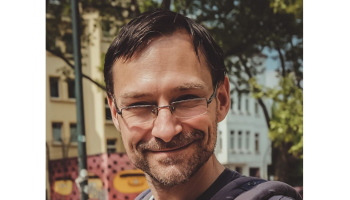
Sobolev multipliers in fluid mechanics
Dominic Breit
We present several new results on PDEs from fluid mechanics in irregular domains. First, we give minimal conditions on the boundary regularity for a maximal regularity theory for the steady and unsteady Stokes system. These results are counterparts of those by Maz'ya and Shaposhnikova for the Laplace equation and are based on the theory of Sobolev multipliers. Eventually, we give two applications. We study a 2D fluid-structure interaction problem (with moving boundary) and prove global existence of strong solutions. For the first time this is possible for a curved reference geometry using the elliptic estimate for the Stokes system pointwise in time. Finally, we prove partial boundary regularity for the 3D incompressible Navier-Stokes equations in non-smooth domains improving a result by Seregin for C2-domains.
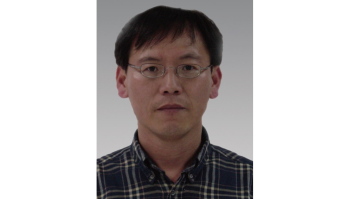
Local, nonlocal and mixed local-nonlocal problems
Sun-Sig Byun
In this talk we present some recent regularity results for local, nonlocal and mixed local-nonlocal problems.
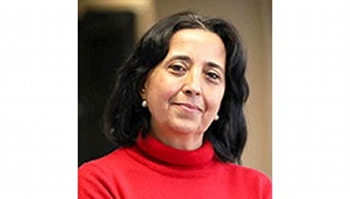
Minkowski inequality on L1,∞
María Carro
It is known that there are many interesting problems in Harmonic Analysis in which its complete solution goes through the study of the boundedness of an operator such as the Hardy-Littlewood maximal operator, the Hilbert transform, a singular integral or a general maximal operator.
Although the boundedness on Lp may not be easy in general, usually things become more complicate when we have to prove the weak type (1,1) boundedness since the space L1,∞ is not a Banach space.
How can we overcome the lack of Minkowski inequality in the space L1,∞ in order to prove the boundedness?
In this talk, we shall present a useful technique, using the theory of Muckenhoupt weights, for solving such type of questions.
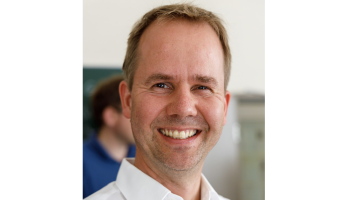
Kacanov Iteration
Lars Diening
The p-Laplace equation is one of the model equations for non-linear problems. Due to its non-linearity it is quite challenging to approximate its solution numerically in particular in the degenerate/singular case. Standard methods like gradient descent or Newton's method have significant problems to approximate the solution. We present an iterative, linear method that allows to solve the p-Laplace equation efficiently both for small and large exponents.
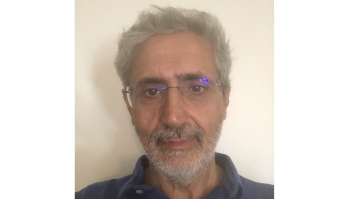
Large Symmetrization for fractional elliptic problems
Vincenzo Ferone
We describe symmetrization results in the form of mass concentration (i.e. integral) comparison for fractional elliptic equations of the type (-Δ)su=f (0<s<1) in a bounded domain Ω, equipped with homogeneous Dirichlet boundary conditions. We use a new direct method which recovers, in the limit s→1, the classical pointwise Talenti rearrangement inequality. Some possible applications of the method to nonlinear equations and to equations with lower order terms will be discussed.
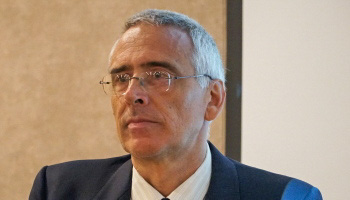
The evolution Navier-Stokes equations in a cube under Navier boundary conditions: rarefaction and uniqueness of global solutions
Filippo Gazzola
Based on the Weyl asymptotic formula for the Stokes eigenvalues, we give an alternative explanation of
the well-known difference for unique global solvability of the evolution Navier-Stokes equations in 2D and 3D, usually attributed
to a lack of regularity of the solutions in 3D.
We study the equations in a cube under Navier boundary conditions. This enables us to determine all the eigenvectors, eigenvalues and the Weyl asymptotic of the
related Stokes problem. By taking advantage of these facts, we
represent the solutions of the 3D evolution Navier-Stokes equations through explicit Fourier series.
We then introduce the notion of rarefaction, namely families of eigenvectors that weakly interact with each other through the
nonlinearity. Finally, we show that solutions satisfying the rarefaction property (plus some other condition) remain smooth and unique
in time, without any smallness assumption on the initial data.
This is a joint work with Alessio Falocchi (Politecnico di Milano).
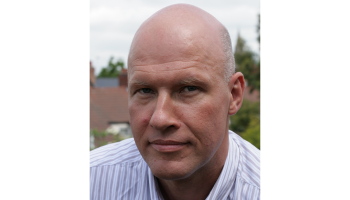
Morrey's problem in classes of homogeneous integrands
Jan Kristensen
The question of whether rank-one convexity implies quasiconvex is often called Morrey's problem. Sverak has shown that the answer is no in general and so a number of modifications have been proposed over the years. In this talk I will discuss some of these where positive answers have been found recently. The talk is based on joint work with Kari Astala (Helsinki), Daniel Faraco (Madrid), Andre Guerra (ETH) and Aleksis Koski (Helsinki).
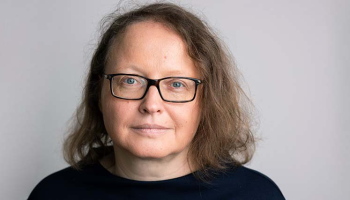
Affine fractional Sobolev and isoperimetric inequalities
Monika Ludwig
In the talk, we will present sharp affine fractional Sobolev inequalities. The new inequalities are significantly stronger than (and directly imply) the sharp fractional Sobolev inequalities by Almgren and Lieb and imply (in the limit) the affine Sobolev inequality by Gaoyong Zhang, even though they do not depend on the Euclidean structure of Rn. Moreover, we will present affine fractional isoperimetric inequalities that are stronger (and directly imply) the Euclidean fractional isoperimetric inequalities. These inequalities are fractional versions of the classical Petty projection inequality.
Joint work with Julián Haddad (Universidade Federal de Minas Gerais)
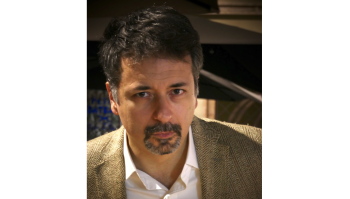
Hopf, Caccioppoli and Schauder, reloaded
Giuseppe Rosario Mingione
So called Schauder estimates are in fact a contribution, at various stages, of Hopf, Caccioppoli and Schauder, between the end of the 20s and the beginning of the 30s. Later on, they were extended, with various degrees of precision, to nonlinear uniformly elliptic equations. I will present the solution to the longstanding open problems of proving estimates of such kind in the nonuniformly elliptic case and for minima of non-differentiable functionals (again considered in the nonuniformly elliptic case). From joint work with Cristiana De Filippis.
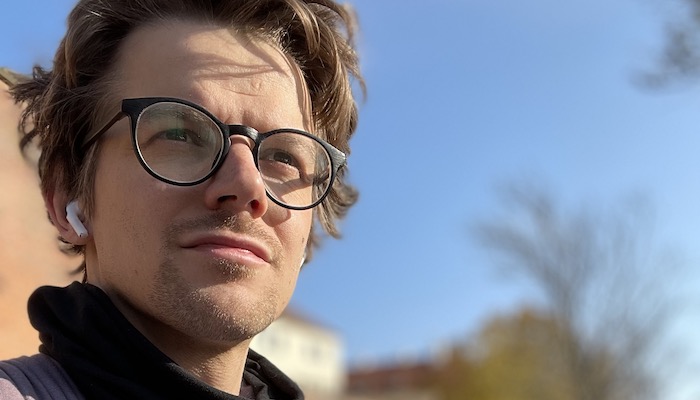
Optimality problems in Orlicz spaces
Vít Musil
In mathematical modelling, the data and solutions are represented as measurable functions and their quality is oftentimes captured by the membership to a certain function space. One of the core questions for an analysis of a model is the mutual relationship between the data and solution quality. The optimality of the obtained results deserves a special focus. It requires a careful choice of families of function spaces balancing between their expressivity, i.e. the ability to capture fine properties of the model, and their accessibility, i.e. its technical difficulty for practical use. We present a unified and general approach to optimality problems in Orlicz spaces. Orlicz spaces are parametrized by a single convex function and neatly balance the expressivity and accessibility. We prove a general principle that yields an easily verifiable necessary and sufficient condition for the existence or the non-existence of an optimal Orlicz space in various tasks. We demonstrate its use in specific problems, including the continuity of Sobolev embeddings and boundedness of integral operators such as the Hardy-Littlewood maximal operator and the Laplace transform.
This is a joint work with Luboš Pick and Jakub Takáč.
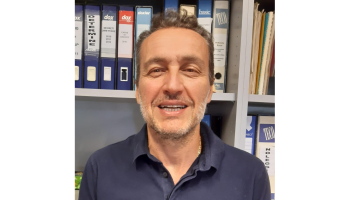
Wulff shape symmetry in overdetermined problems for Finsler operators
Paolo Salani
I will discuss overdetermined problems for Finsler operators. In particular, I will present new results for a Monge-Ampère type equation, modeled upon general anisotropic norms H in Rn. Similarly to what happens in the Euclidean case, when the solution is subject to both a homogeneous Dirichlet condition and a second boundary condition, designed on H, the domain (and the solution) must have a Wulff shape symmetry associated with H. The talk is based on joint papers with Andrea.
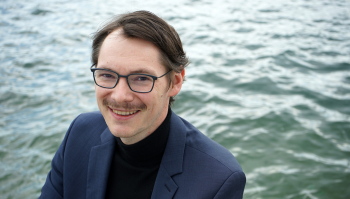
Injectivity in second-gradient Nonlinear Elasticity
Sebastian Schwarzacher
We study elastic energies that are used to model Nonlinear Elasticity that involve the
second gradient and negative powers on the Jacobian for. Under suitable conditions we
show that any map with must be a homeomorphism. As a main new tool we find an optimal
condition on the energy that the Jacobian cannot change sign. We further specify the maximal
Hausdorff dimension of the critical set where the Jacobian vanishes.
The sharpness of our conditions for is demonstrated by constructing respective counterexamples.
The talk is based on a joint work with D.Campbell, S. Hencl and A. Menovschikov.
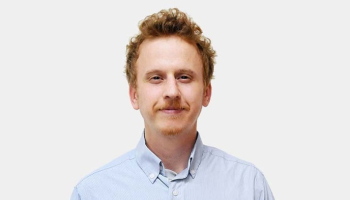
Riesz potentials around L1 and L∞
Daniel Spector
The spaces L1 and L∞ do not behave like other Lp spaces in relation to the Riesz potential, a fact which was observed from the very beginning. These anomalies have made life interesting over the last almost century of study, where the progressive study of this topic has led to the discovery of a number of results. In this talk the speaker will review the literature that he is aware of and share his perspective of the present state of the art. Open problems will be mentioned.
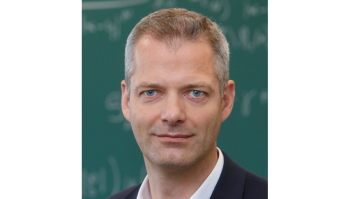
Symmetry Breaking for Ground States of Biharmonic Nonlinear Schrödinger Equations
Tobias Weth
We consider ground states solutions, suitably defined as energy minimizers, of a class of semilinear biharmonic (fourth-order) Schrödinger equations. By exploiting a connection to the adjoint Stein–Tomas inequality on the unit sphere and by using trial functions related to Knapp’s example, we prove a symmetry breaking result for ground state solutions, which is in striking contrast to the well-known results of radial symmetry for ground states of classical second-order nonlinear Schrödinger equations. We also discuss symmetry breaking for a minimization problem with constrained mass and for a related problem on the unit ball subject to Dirichlet boundary conditions.
This is joint work with Enno Lenzmann (Universität Basel).